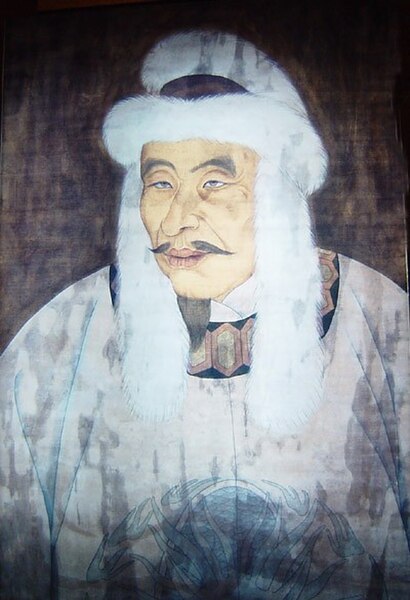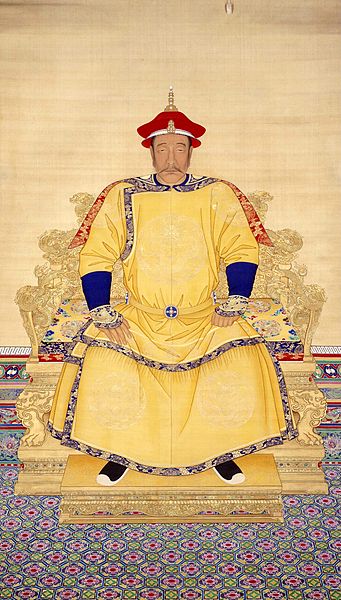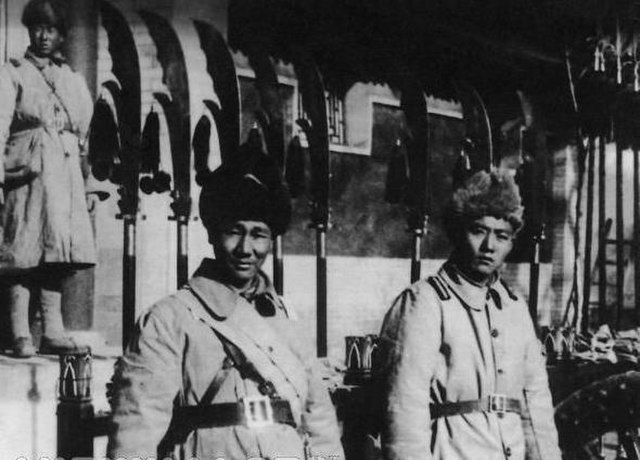Dorgon, was a Manchu prince and regent of the early Qing dynasty. Born in the House of Aisin-Gioro as the 14th son of Nurhaci, Dorgon started his career in military campaigns against the Mongols, the Koreans, and the Ming dynasty during the reign of Hong Taiji who succeeded their father.
Portrait of Dorgon as regent in imperial regalia
The circular mound of the Altar of Heaven, where the Shunzhi Emperor conducted sacrifices on 30 October 1644, ten days before being officially proclaimed Emperor of China. The ceremony marked the moment when the Qing dynasty seized the Mandate of Heaven.
Examination rooms in Beijing. In order to enhance their legitimacy among the Chinese elite, the Qing reestablished the imperial civil service examinations almost as soon as they seized Beijing in 1644.
A late Qing dynasty woodblock print representing the Yangzhou massacre of May 1645. Dorgon's brother, Dodo, ordered this massacre to scare other southern Chinese cities into submission. By the late 19th century, the massacre was used by anti-Qing revolutionaries to arouse anti-Manchu sentiment among the Han Chinese population.
The Manchus A are a Tungusic East Asian ethnic group native to Manchuria in Northeast Asia. They are an officially recognized ethnic minority in China and the people from whom Manchuria derives its name. The Later Jin (1616–1636) and Qing (1636–1912) dynasties of China were established and ruled by the Manchus, who are descended from the Jurchen people who earlier established the Jin dynasty (1115–1234) in northern China.
Manchus form the largest branch of the Tungusic peoples and are distributed throughout China, forming the fourth largest ethnic group in the country. They can be found in 31 Chinese provincial regions. Among them, Liaoning has the largest population and Hebei, Heilongjiang, Jilin, Inner Mongolia and Beijing have over 100,000 Manchu residents. About half of the population live in Liaoning and one-fifth in Hebei. There are a number of Manchu autonomous counties in China, such as Xinbin, Xiuyan, Qinglong, Fengning, Yitong, Qingyuan, Weichang, Kuancheng, Benxi, Kuandian, Huanren, Fengcheng, BeizhenB and over 300 Manchu towns and townships. Manchus are the largest minority group in China without an autonomous region.

Aguda, Emperor Taizu of Jurchen Jin
An imperial portrait of Nurhaci
Prince Zaitao dresses in modern reformed uniform of late Qing dynasty
Fengtian Clique soldiers in the 1920s








